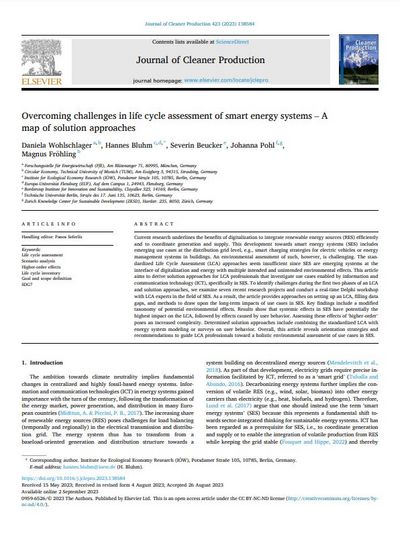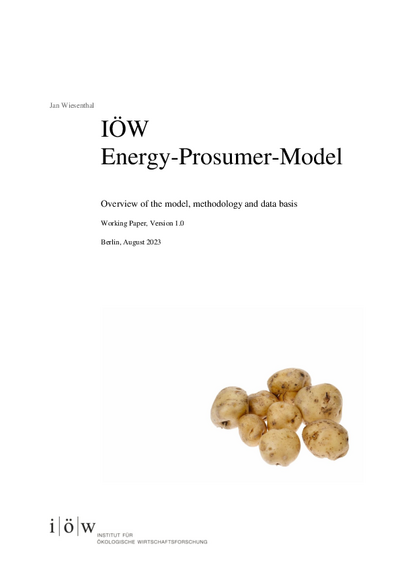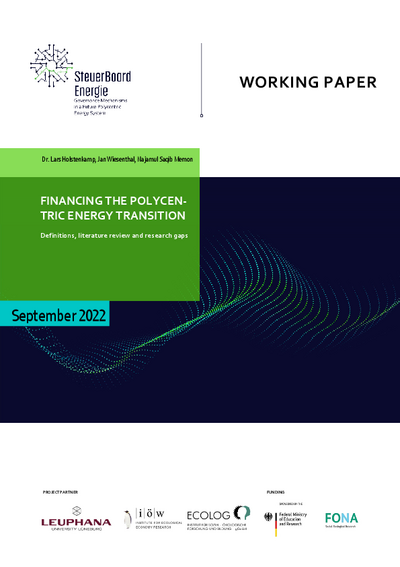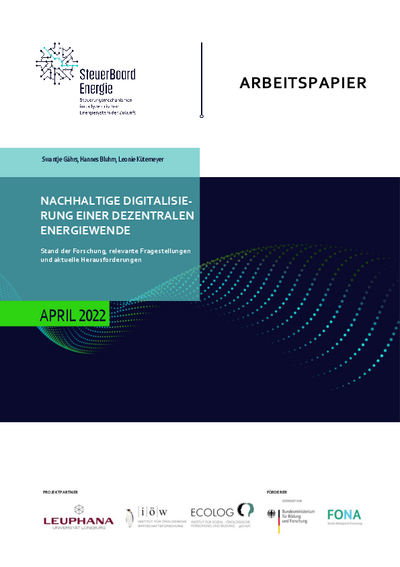SteuerBoard Energie Control mechanisms in the polycentric energy system of the future
The energy sector is in a transition around the world with the aim of reducing CO2 emissions. Measured against the politically set goals, however, this development is progressing too slowly – also in Germany. The management of the energy system is influenced by various institutional actors, such as legislators, local politicians or grid operators, at different levels from central to regional and local. A multitude of interfering actors at different levels who independently develop rules and norms for their area is understood as ”polycentric governance”. This can bring positive characteristics for sustainable development: promoting innovations through an experimental environment, increased resilience, stronger direct participation and equity, as well as the possibility of rapid transformation through many, decentralized changes.
Key factors digitization and financing
The project focuses on two structural key factors in managing the energy transition: digitization and financing. The research project focuses on the following questions:
- How can a polycentrically controlled energy system be designed for sustainable development?
- What contribution can digitization and financing of the energy system make?
Based on the concept of polycentric governance, the junior research group funded within the Social-Ecological Research funding priority develops an analysis framework with a focus on digitization and financing. The aim is to examine the extent to which polycentricity strengthens the principle of subsidiarity, supports innovations and learning effects and creates more trust, acceptance and justice.
In the area of financing, current debates about the legal framework and “sustainable finance” are incorporated. Digitization is examined as a possible “enabler” of ecological-technical integration and self-organization in the energy system. The scientists record the interactions between digital applications and sustainability.
The aim of the project is to determine the effect of polycentric governance as a control mechanism in the energy system of the future and to describe transformation paths to sustainable polycentric control.
Recommendations for action and guidelines are drawn up for politics and administration, which enable decentralized, social mobilization and thus contribute to the energy transition picking up speed again and the climate targets to be achieved. Further recommendations and instruments for practice aim to improve business models and decision-making processes.
To the project page of SteuerBoard Energie.










